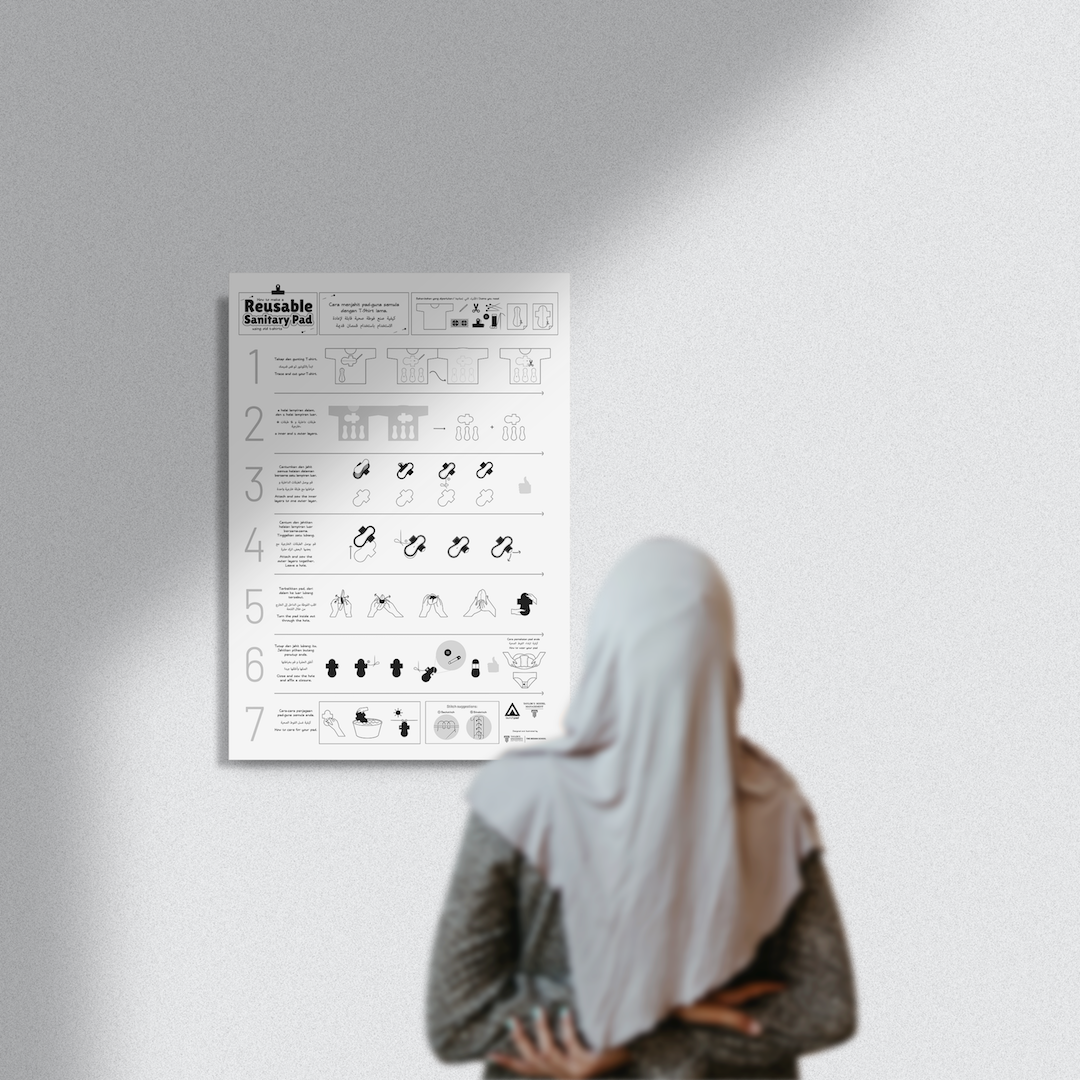In 2019, Taylor’s Hostel Management (THM) initiated the LaunchPad project, a flagship Service Learning Programme with an aim to end menstruation poverty among female refugees living in Malaysia. Reusable pads handmade by students and refugees were donated, skills to make reusable pads were passed down from students to refugees, and knowledge about menstrual health was shared. Despite the onset of the pandemic in 2020, the project grew involving 90 student volunteers that improved the lives of over 1,000 refugees through partnerships with 8 non-profit organisations and Community Based Organisations (CBO) alike; UNHCR, Somali refugee centre (SRC), Rohingya Women Development Network (RWDN), Médecins Sans Frontières (Malaysia & International) to name a few.
On the January 25, 2021, THM’s team Lew Pik Svonn, Kang Zetty Anis and Teang Suh Wei sought help to codify the pad-making process in the form of an instructional poster. The Design School at Taylor’s University responded to the call-for-help and two of its students Kuan Tze Earn and Seerat Taayab Mukhtar Qureshi from the Year 1 along with Senior Lecturer Vinod J. Nair took on the project.
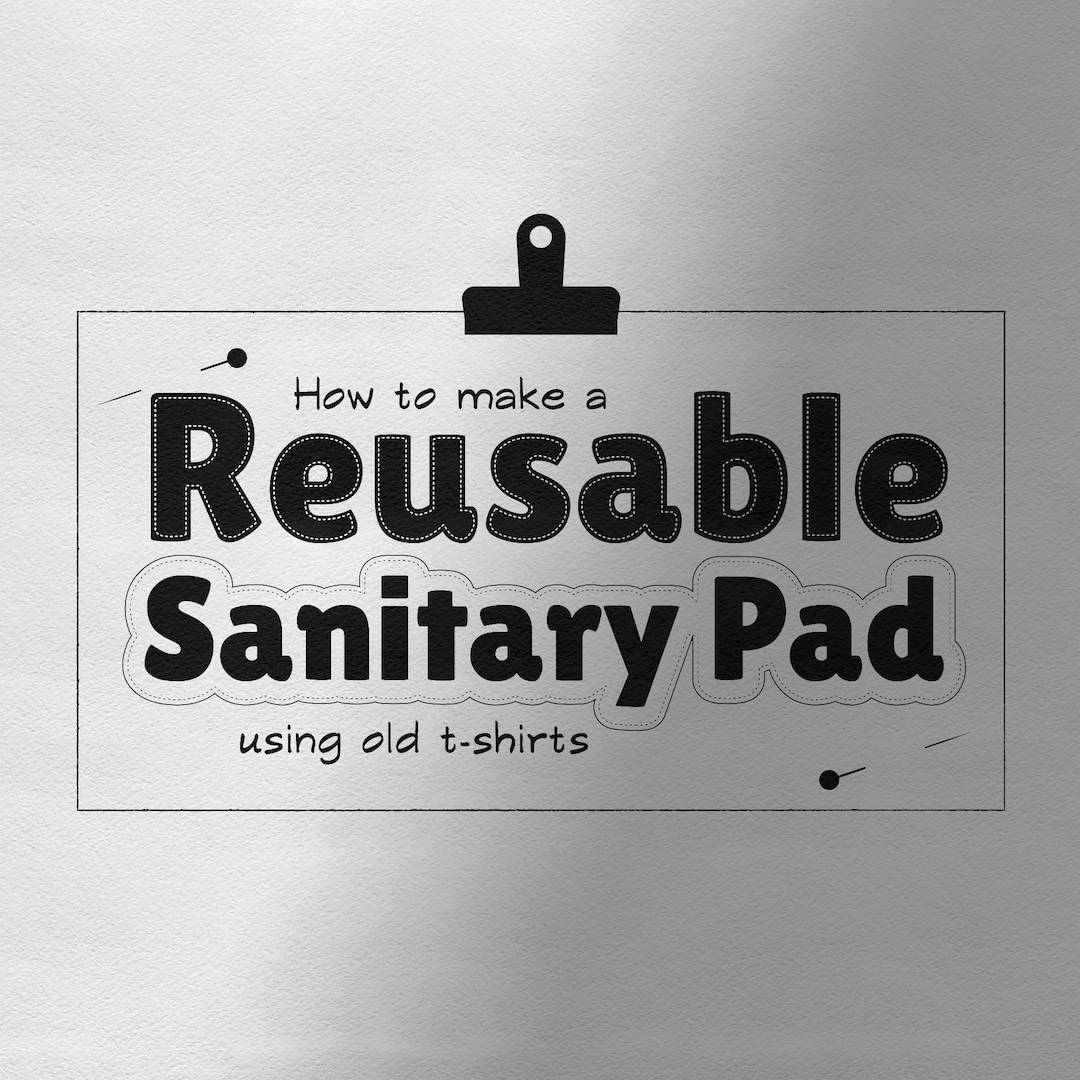
The challenge required the team to create an instructional poster to enable refugee communities to lead and run LaunchPad workshops and become their own pad producers. The challenge required identifying the main parts of the complex process and codifying it graphically. This demanded an intimate understanding of the process. As such the design students constructed their own pads using the materials and set procedures gaining insight into the process.
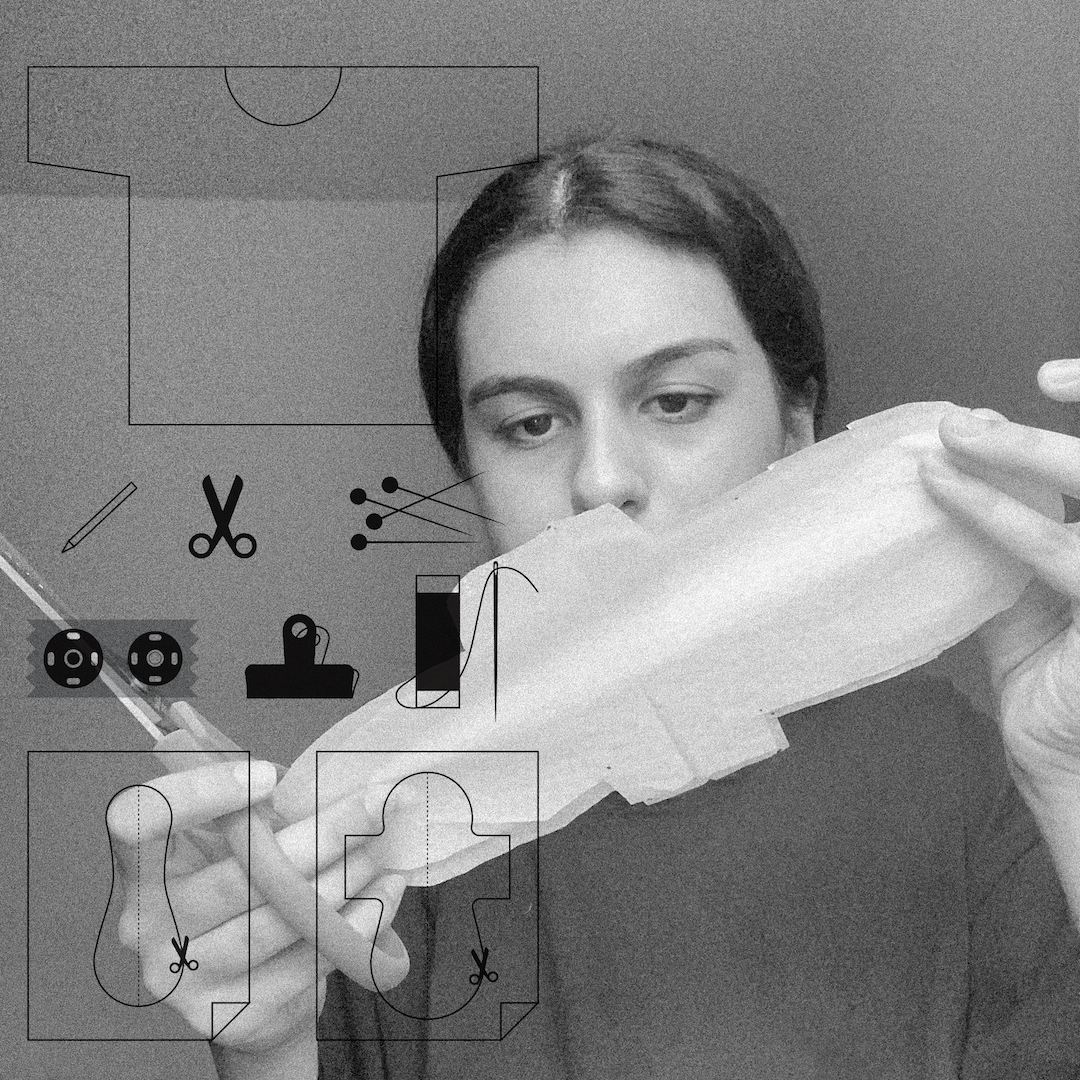
“A big challenge was making sure the visuals were understood by the refugees so they had to make them as obvious as possible. They learned that some of the refugees did not even know what a smiley face meant, thus the design students had to make sure that their instructions were visually precise and easy to understand.”
After countless online meetings among the team, hundred plus hours of work, many messages back and forth over several months, and after several meetings with the stakeholders for feedback, the job was done. In an email reply on a question pertaining to the challenges they faced Tze Earn and Seerat said, “A big challenge was making sure our visuals were understood by the refugees so we had to make them as obvious as possible. We were told that some of them did not even know what a smiley face meant and so we had to make sure that our instructions were visually precise and easy to understand.” After numerous iterations, the final deliverable — an A1 instructional poster — was created in black and white, to allow for photocopying thus cost savings. It was also the preferred option identified by the non-governmental organisation (NGO) and community based organisations (CBO) representatives. From these meetings the team realised that in addition to the A1 instructional poster, an additional version optimised for mobile screens would prove very useful and thus was added to the graphic output as well. This instructional poster will impact thousands of lives, as it will be shared not just within Malaysia but also internationally. The instructions have also been translated into 6 languages so far (not including English).
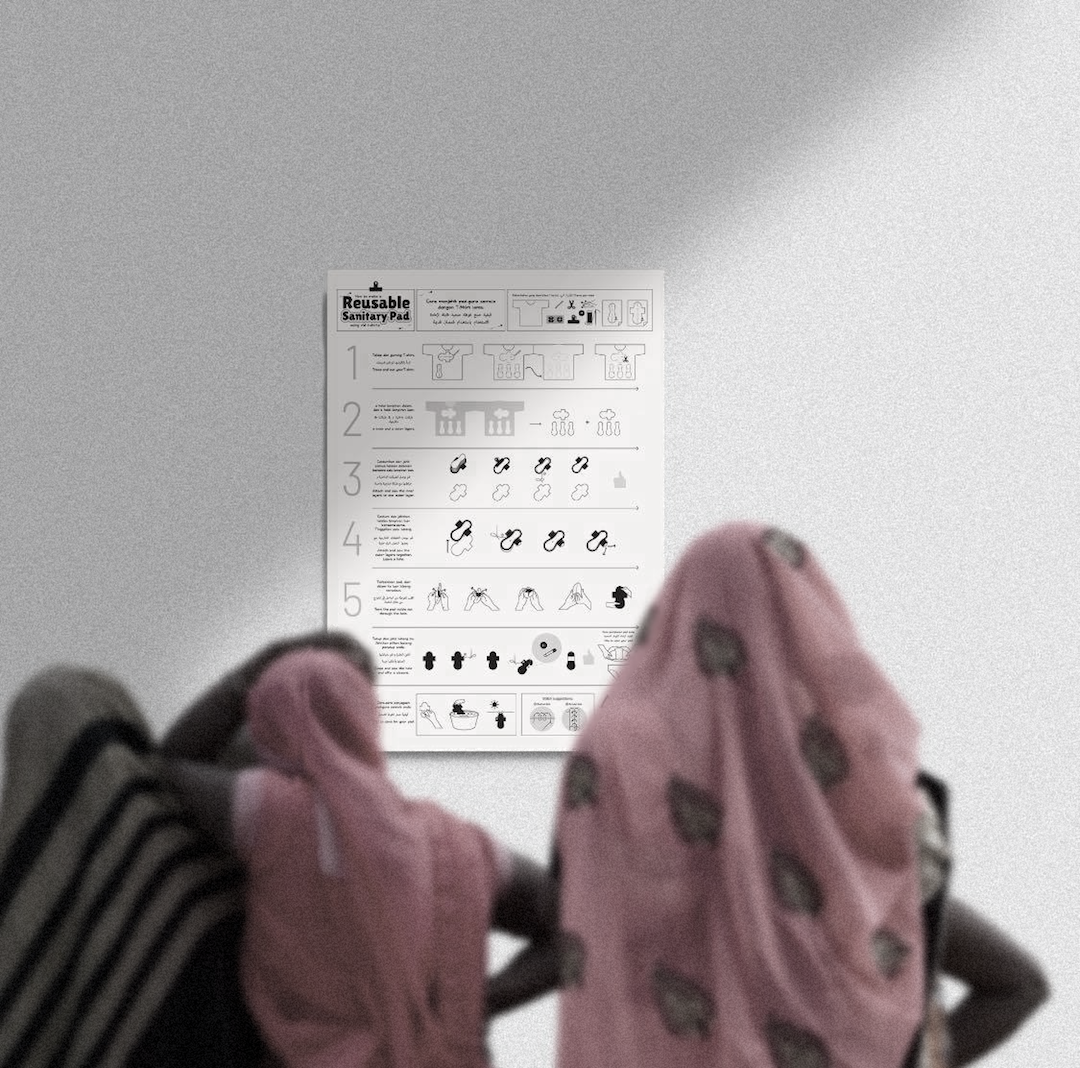
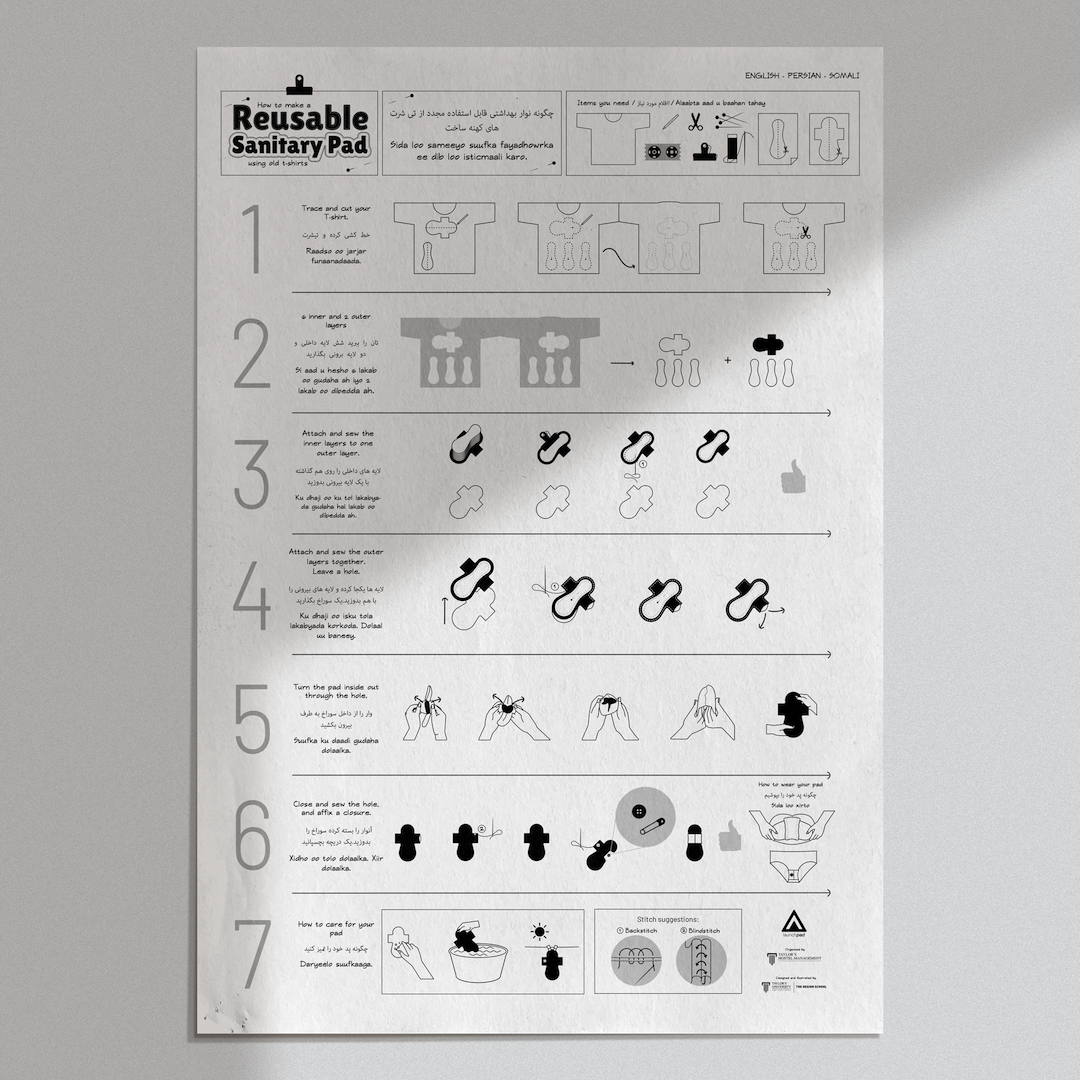
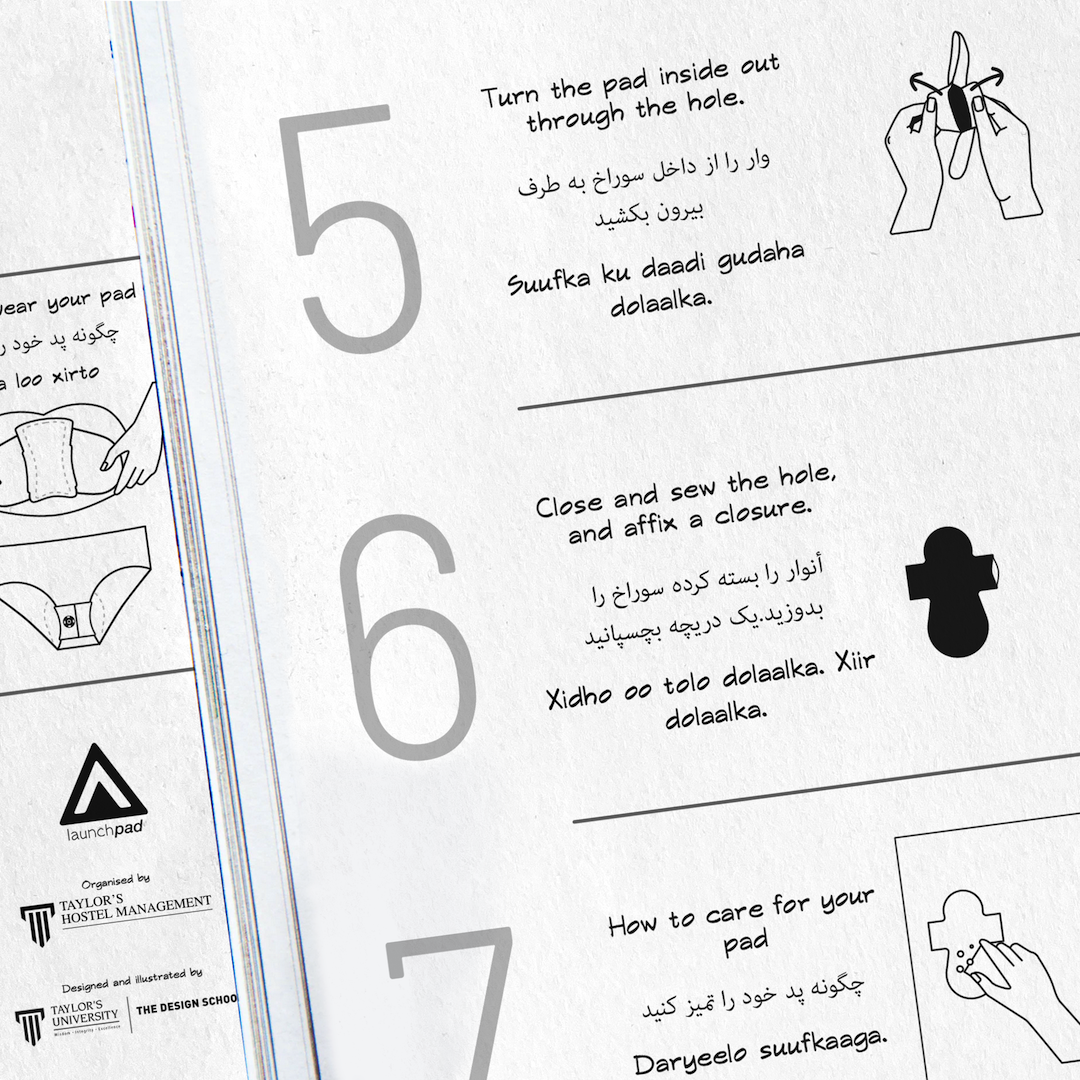
When the student designers Tze Earn and Seerat were asked why it was important to become involved in this project, they replied, “As student designers, we feel responsible to do what we can to help people who are in need. The Launchpad project has improved the lives of many refugee women. We find it rather inspiring and hope to do our part to keep this project thriving.” It is a testimony of the students’ character and belief in their civic duties to better society using the skills sets they developed after their first semester in the Bachelor of Design (Honours) in Creative Media (BDCM) programme.
“It was quite a reality check to know what the refugee women experience during their periods. The entire experience of learning about their struggles, but more importantly, how their strength was extremely moving and memorable. It provided us with a perspective on how different lives are, outside the comfort of our homes.”
When they were asked what surprised them during the project phase they replied that “It was quite a reality check to know what the refugee women experience during their periods. The entire experience of learning about their struggles, but more importantly, how their strength was extremely moving and memorable. It provided us with a perspective on how different lives are, outside the comfort of our homes.”
They went on to explain that the experience gained from this project taught them the importance of user experience by listening to feedback; being meticulous and communicating effectively; to handle expectations; to manage time; and to allow the client to know what was possible and what was not. As students, they were initially hesitant to express valid concerns and thoughts when dealing with the beneficiaries of the work, but they realised that the need to express these concerns was crucial since “saying yes to everything would not benefit anyone.”
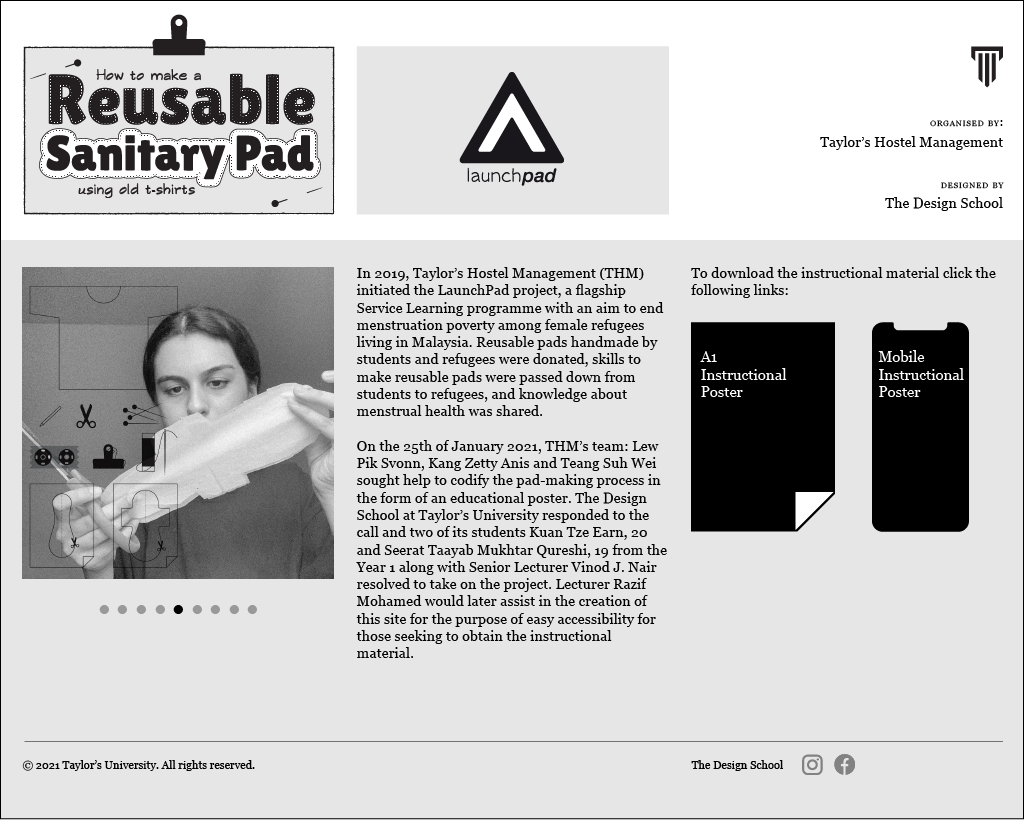
Once the project was complete, lecturer Razif Mohamad from the UIUX specialisation offered to create a microsite that allows access to downloadable content anytime and anywhere. The site can be accessed here.
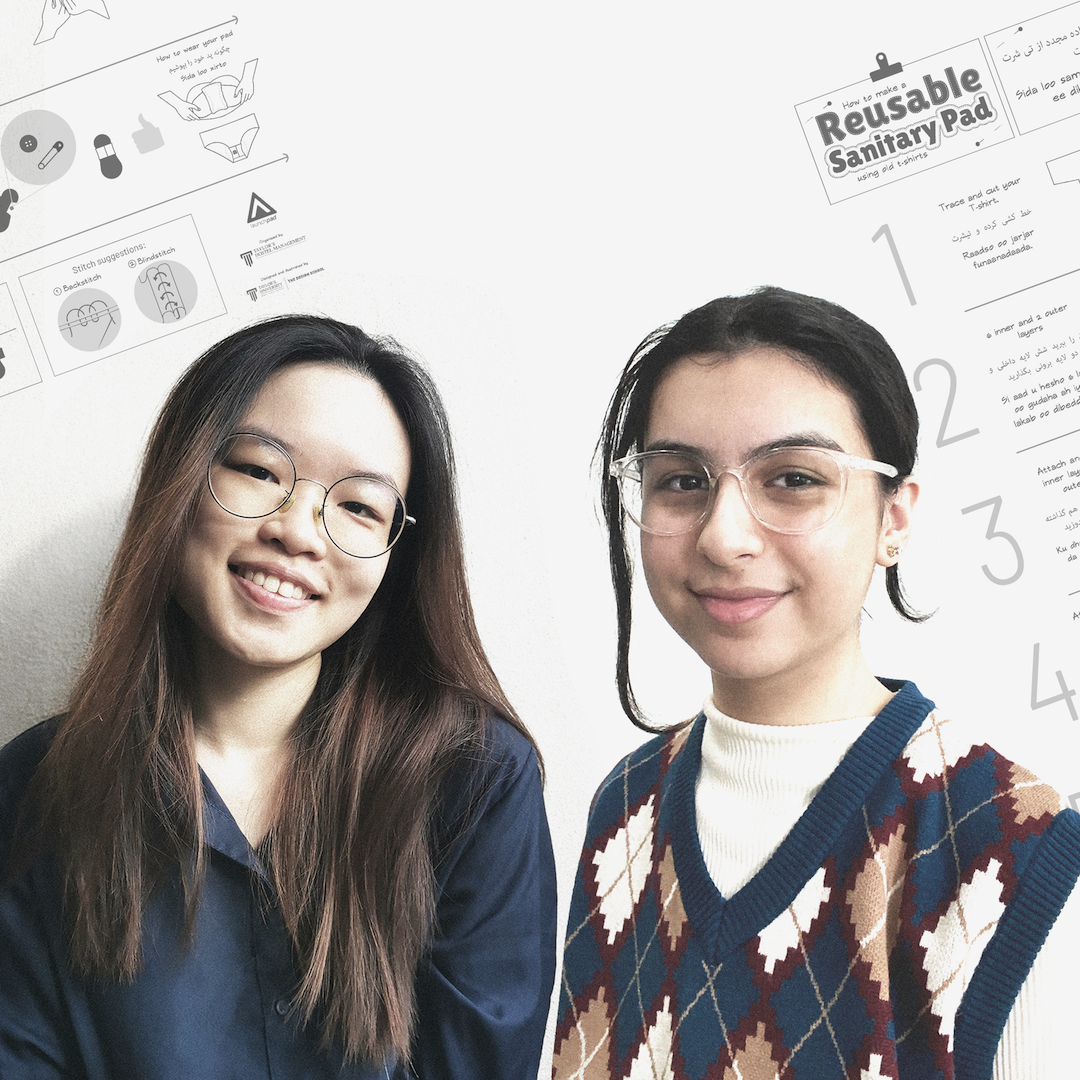
As a lecturer who worked with genuine “superstars” — a term endearingly bestowed on them by Lew Pik Svonn, lead project manager for LaunchPad — the work both seen and unseen is a testimony to the calibre and potency of these budding graphic design students. It is also a validation of the Bachelor of Design (Honours) in Creative Media programme and university outcomes. These two students were able to demonstrate competence, integrate knowledge, exercise problem solving, and apply critical thinking skills while also appropriately communicating the intended message. In addition, they collaborated and cooperated in a professional manner to achieve the desired outcome. In short; it means that down the line these students will be able to take on larger projects for corporations or organisations; it means that The Design School is living up to its promise of delivering creative problem solvers that can contribute to society, community, and industry.
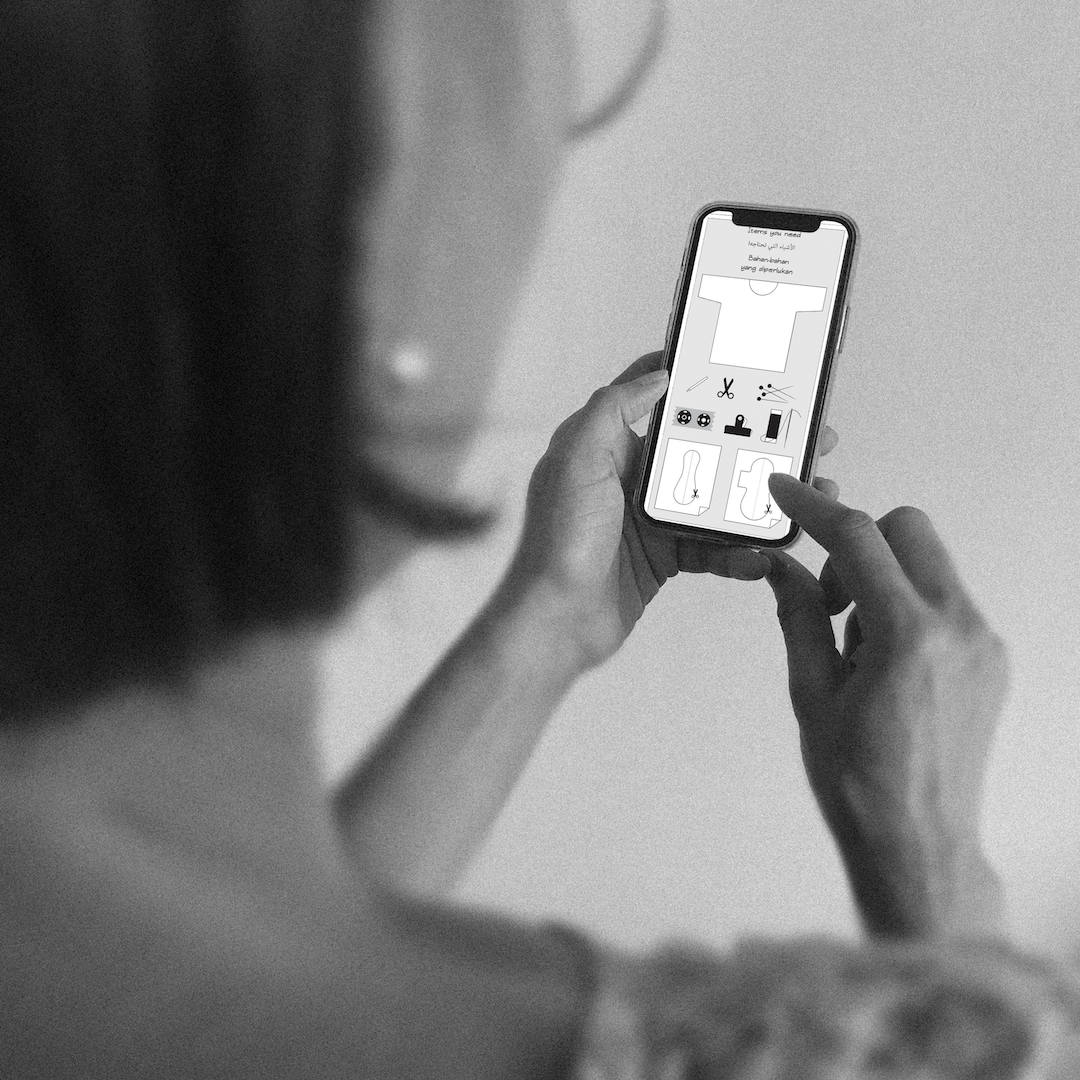
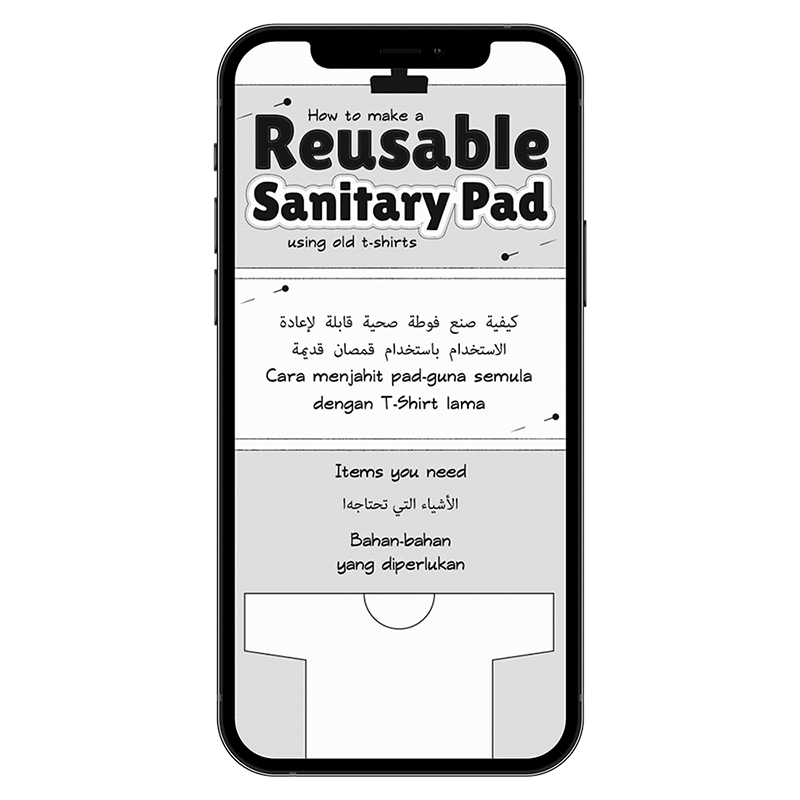
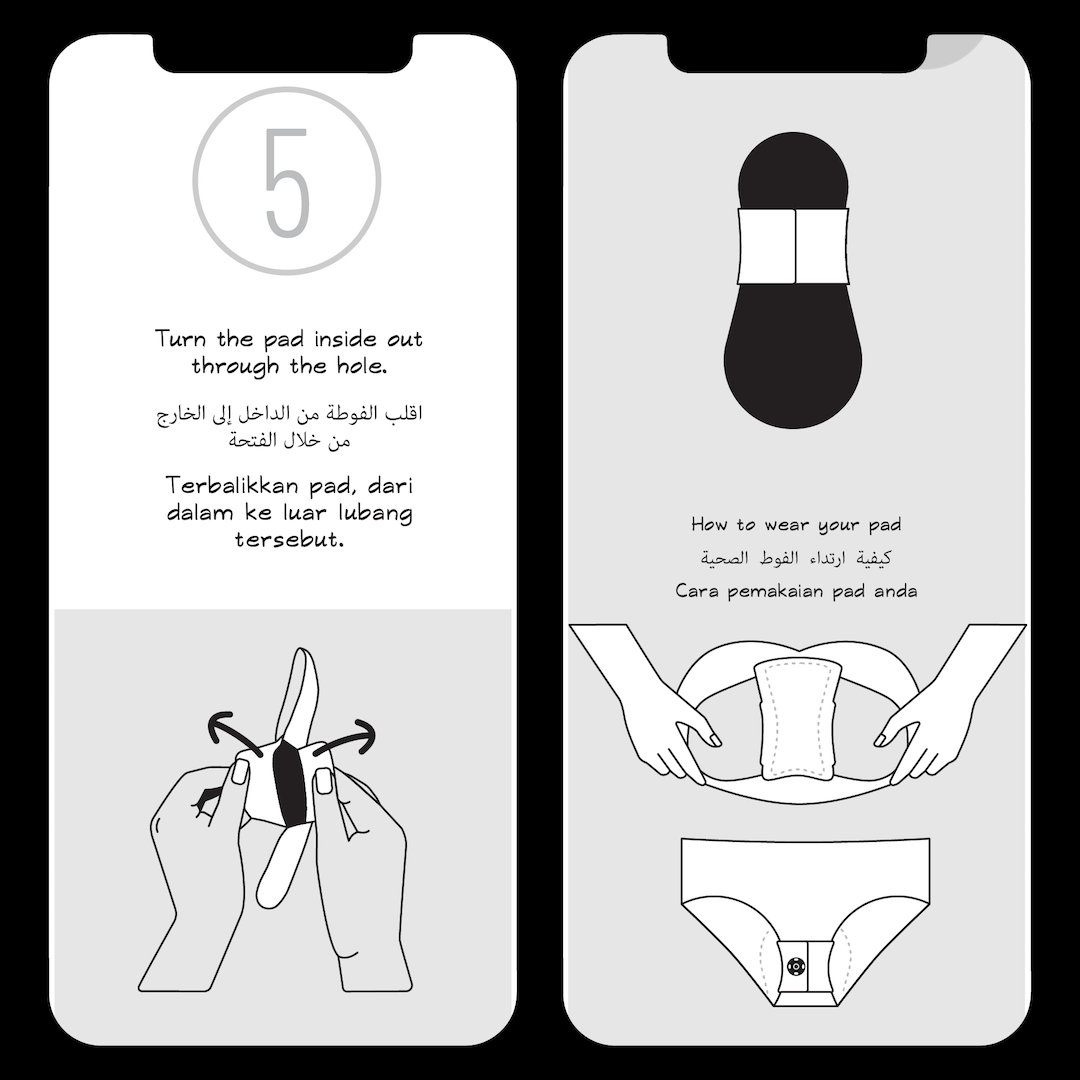
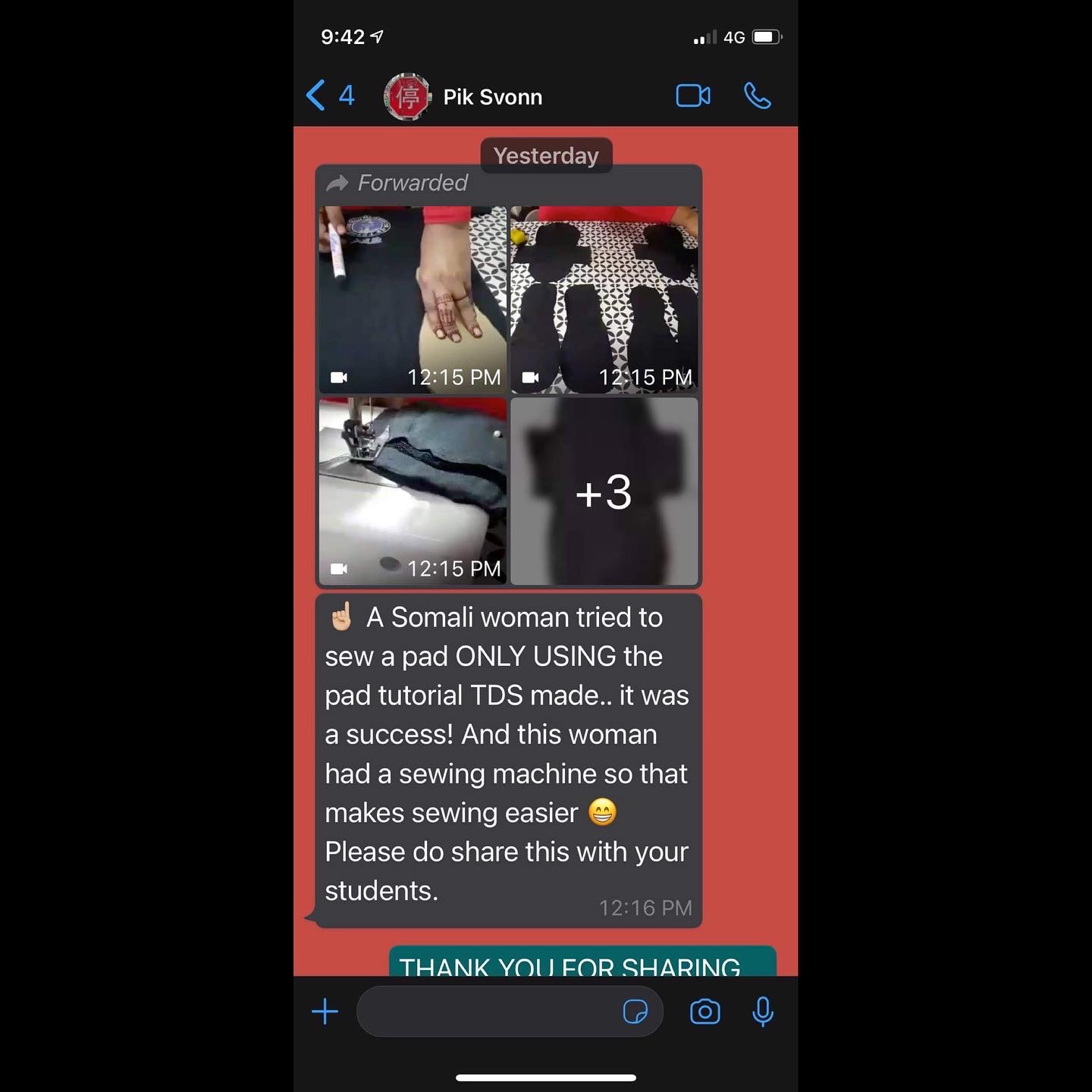
A message from project lead Pik Svonn from Taylor’s Hostel Management on the success of the designed instructional material.
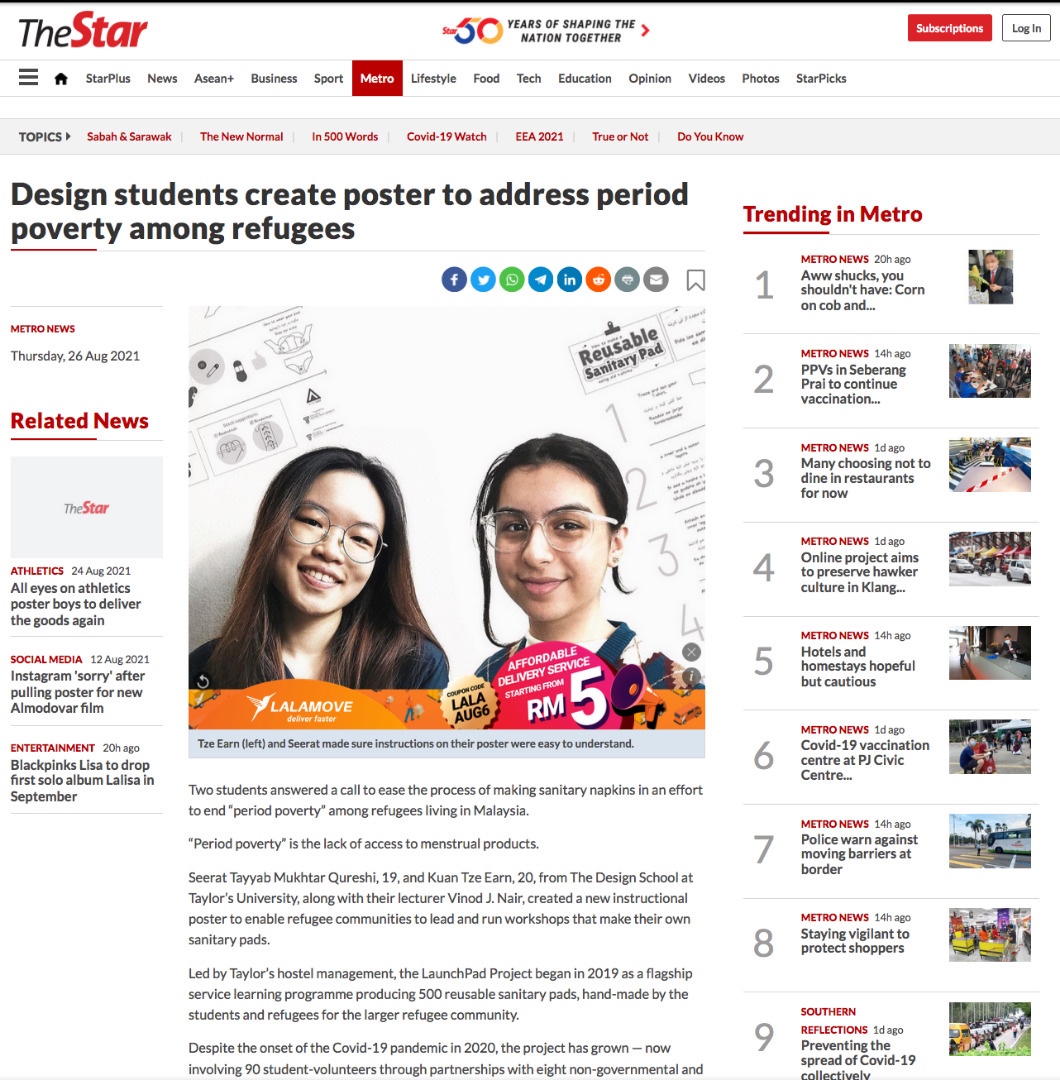
TheStar newspaper featured the students in the Metro News section on August 26, 2021.
Should you wish to download or disseminate the instructional poster (mobile or A1 poster), you can obtain the content here.

